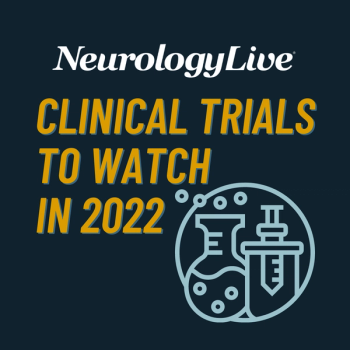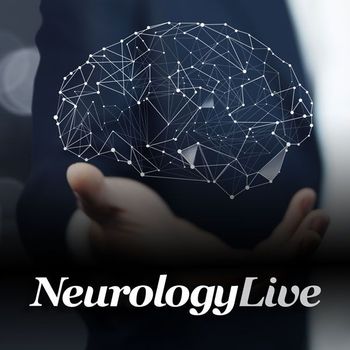
Treatment with blarcamesine resulted in statistically significant improvements on the new primary end point and significantly reduced Rett syndrome symptoms through changes in potential biomarkers of disease pathology.

Marco Meglio, Assistant Managing Editor for NeurologyLive, has been with the team since October 2019. Follow him on Twitter @marcomeglio1 or email him at [email protected]

Treatment with blarcamesine resulted in statistically significant improvements on the new primary end point and significantly reduced Rett syndrome symptoms through changes in potential biomarkers of disease pathology.

The cognitive neurologist at the University of California, San Francisco provided insight on the research needed to explain more about COVID-19’s pathogenesis and the realistic possibility of developing neurocognitive disorders.

A greater proportion of patients treated with 0.25 mg/kg of tenecteplase were free from disability or achieved functional independence compared with those treated with 0.40 mg/kg doses, or alteplase.

Regardless of baseline body mass index, patients who had increases or decreases of 5% or more in BMI had faster cognitive decline over a 5-year follow-up period.

Overall, more than 40% of the cohort were eligible for a migraine preventive medication, but only 16.8% reported currently using one.

In addition to improving constipation in patients with Parkinson disease, ENT-01 also helped improve Mini-Mental State Examination scores, an exploratory measure of cognition.

Take a look at 5 of the most-anticipated clinical trial data readouts expected in 2022 that neurology health care professionals should keep their eyes on.

Chronic medical comorbidities, more commonly found in patients with obstructive sleep apnea, have been associated with higher readmission and healthcare utilization rates.

At 10 minutes post dose, all 3 AZ-009 dose groups showed a clear reduction from baseline in mean MDS-UPDRS part III score that was greater than for placebo.

After adjusting for baseline scores, no significant correlation emerged between the changes on Epworth Sleepiness Scale and the number of hours of CPAP use.

The recurrence of ischemic stroke was less common with dual antiplatelet therapy than with monotherapy in those treated within the 15–180-day window, and similarly common in the 8–14-day period.

The cognitive neurologist at the University of California, San Francisco discussed recently published data on the presence of cognitive post-acute sequelae of COVID-19 and the need to legitimize these conditions.

Approximately 300 patients across 30 clinical centers will be included in the 36-week study evaluating the efficacy and safety of sodium oligomannate (GV-971), a medication currently approved for Alzheimer disease in China.

Device-related adverse events were reported in less than 1% of the safety analysis population, which included more than 100,000 patients with migraine who were treated with Nerivio.

Patients on the study drug demonstrated improvements in several different exploratory cardiac end points, including NT-proBNP and echocardiographic parameters relative to placebo.

The trial will also include another investiartional Eisai agent, the antiamyloid therapy lecanemab, as the background study drug to evaluate the true effect of E2814 has on patients with dominantly inherited Alzheimer disease.

In a Health Union survey of more than 400 patients, those with focal seizures were more likely to say they’ve experienced discrimination, isolation, and reduced productivity at work compared with those without.

The risk of 5-year ipsilateral recurrent stroke was 14.3% for those with Symptomatic Carotid Atheroma Inflammation Lumen-Stenosis scores of at least 3 compared with 2.6% for those with low-risk category scores.

Hypoperfusion index was able to estimate the rate of core progression in patients with stroke who had otherwise unclassified progression by reperfusion trial core time criteria.

In cases with reported behavioral variant AD, investigators observed AD-like pattern with relative frontal sparing and a relatively more behavioral variant frontotemporal dementia-like pattern with both posterior and anterior involvement.

The research director and staff scientist at Cleveland Clinic’s Epilepsy Center provided an inside look at the ways MR fingerprinting can provide real-time clinical benefit for physicians and patient care.

Habits of moderate-to-vigorous exercise were preferentially associated with slower decline of postural and gait stability, and work-related activity levels were primarily associated with slower deterioration of processing speed.

Those who had crossovers of ALS and frontotemporal dementia had structural and functional resemblance to the patterns of damage of those with only behavioral variant frontotemporal dementia.

Becky Tilahun, PhD, a clinical psychologist at Cleveland Clinic, offered insight into a recent study she and colleagues conducted exploring CBT-informed psychotherapy for patients with psychogenic nonepileptic seizures

The research also identified small subcortical cerebral amyloid angiopathy-associated acute ischemic stroke lesions as risk factors for death in these patients.

Regions typically affected by Alzheimer disease-related neurodegeneration were similarly protected by the carriership of at least 1 ε2 allele, regardless of their load.

The combination of diagnostic tests lateralized MRI-negative temporal lobe epilepsy with greater than 80% accuracy, offering considerable gain over visual radiologic assessment.

The data, which included information from more than 10 million adults collected over 20 years, lend credence to a long-held theory in the field.

The authors noted that the findings indirectly support the use of highly effective disease-modifying treatments from the early stages of disease in those with pediatric-onset MS, even in the absence of persistent physical disability.

Only 30% of the observed cohort of more than 150 children had their hypertonia type specified as spasticity and/or dystonia by age 5 years, highlighting a need for additional education efforts.